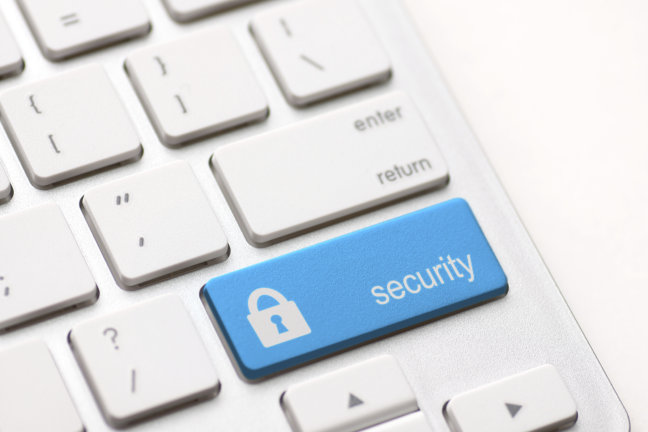Now that credit freezes are free, it’s usually in your best interest to freeze your credit report to prevent ID theft.

This is a big step forward for consumer rights since under previous state laws, only consumers in some states enjoyed free credit freezes; everyone else had to pay.
What are credit freezes and fraud alerts?
There are two basic tools that consumers who are concerned about identity theft can use:
- Fraud alerts
- Credit freezes
A fraud alert requires that any business that wants to run a credit check must get the consumer’s approval before opening a new account. A credit freeze is more drastic, completely restricting access to a consumer’s credit report without authorization. So, with a fraud alert, companies can review your credit, but can’t open new accounts without your permission. With a freeze, they can’t even check your report. This means no pre-approved credit offers and it means even the consumer has a restricted ability to apply for new credit.
Under the old laws, fraud alerts would be placed for 90 days. Then the consumer would need to take extra steps to extend the alert. Under the new law, they last for one-year without any need to extend them. Under the old law, freezing and unfreezing your credit usually cost money, unless you lived in one of the states that had legislation to make them free. Now, they’re free for everyone.
Why should you freeze your credit?
“Both fraud alerts and credit freezes are really meant as tools to help prevent identity theft,” says Gary Herman, President of Consolidated Credit. “The goal is to prevent someone that obtains your Social Security number from opening new accounts in your name. They do not prevent unauthorized use of an existing account. Alerts are generally used when you have a concern that your personal information has been compromised. They let creditors and lenders know that new credit applications may be fraudulent.”
By contrast, Herman says a credit freeze offers other benefits, particularly to consumers who are trying to eliminate debt. Because a security freeze prevents any pre-approved credit offers, it cuts off the potential for consumers to be tempted into opening new credit lines. It also prevents impulsively opening accounts at checkout when you’re offered incentives.
“If you freeze your credit, it makes it harder for you to open new accounts. It puts an extra step in the process because you must unfreeze your credit reports before the creditor or lender can run a credit check,” Herman explains. “And even though freezes and unfreezes are free, they’re not instantaneous. It takes a few days for the freeze (or unfreeze) to go into effect.”
Herman says that window can help people avoid taking on accounts that they really don’t need. You can’t just jump at a credit offer in checkout. And that’s a good thing because those offers often have hidden terms and higher rates that the sales attendant doesn’t explain while they’re trying to tempt you into opening an account.
When should you freeze your credit?
“As soon as possible,” Herman encourages. “You don’t need to wait to have concerns about identity theft to freeze your credit. You can do it now and cut off identity theft before it ever happens. Leaving your credit frozen will give you an extra layer of protection against identity theft. At the same time, it will help you avoid opening new accounts in your own name that would just lead to more debt.”
Herman says the best way to use free credit freezes is to leave your credit frozen indefinitely until you need to apply for a new loan. If you know you want to purchase a car or start the process to buy a home, you can unfreeze your credit while you shop for the best rate. Just unfreeze your credit and wait a few days for the unfreeze to process. Then you can get quotes and apply for the loan you want. Once you’re done, you refreeze all your reports.
“Leaving your reports frozen until you have a clear need for a new account is just a smart way to manage your credit,” Herman says. “It’s better for preventing ID theft. It also stops that constant flood of pre-approved credit offers in the mail and helps you avoid opening credit on impulse. There’s no downside for a consumer to operate this way. The credit bureaus may not like, because now it costs them money anytime someone freezes or unfreezes their report. But it’s good for you and that’s what matters.”
How to freeze your credit
The basic process to freeze your credit with all three bureaus is the same as it was previously:
- You contact each respective bureau and tell them you’d like to place a credit freeze
- They will help you set the freeze up and give you a unique PIN number
- Once your credit is frozen, you must supply the PIN to unfreeze your report.
However, the process to freeze and unfreeze your credit is also easier now. Each credit bureau has added a portal to their website to make freezing easier. They also now offer apps to help you freeze and unfreeze your credit on your favorite smartphone device. Just make sure that you’re using the right tool, since each bureau also offers paid credit monitoring and they may try to drive you to pay for something.
So, you need to make sure that you’re signing up for the security freeze and not some other type of service. Use the links we provide below to get to the right service. Make sure you avoid the TU CreditLock, CreditLock by Experian, or Lock & Alert by Equifax. These paid products all come up first if you try to search for credit freezes on the bureau websites.
Here are the real links you can use for freezing your reports with each credit bureau:
For more tips on preventing ID theft, visit Consolidated Credit’s Identity Theft Protection Guide.

